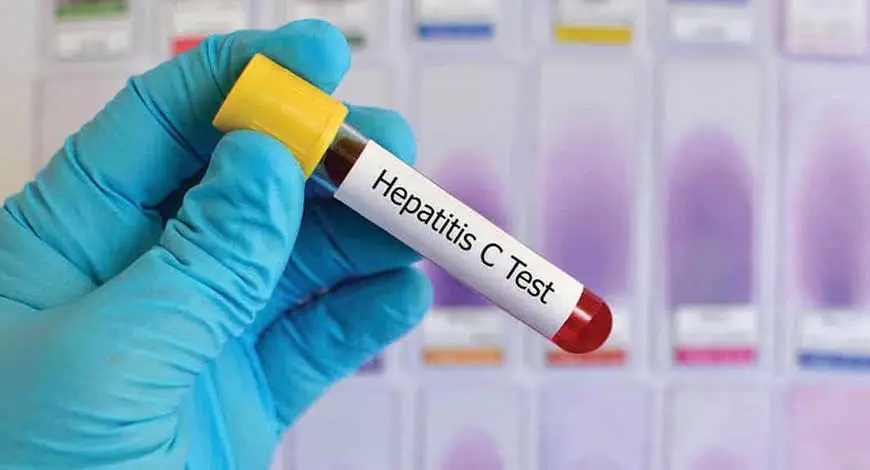WHO unveils the first self-test for hepatitis C virus

Hepatitis C is a liver infection caused by HCV, a blood-borne virus that can lead to both acute and chronic hepatitis, ranging from mild illness to severe conditions.
The World Health Organisation (WHO) has achieved a significant milestone by prequalifying the first hepatitis C virus (HCV) self-test, marking a major advancement in the global fight against the disease.
Hepatitis C is a liver infection caused by HCV, a blood-borne virus that can lead to both acute and chronic hepatitis, ranging from mild illness to severe conditions, according to the Centre for Disease Control (CDC)
More To Read
- WHO warns of fake breast cancer drug in Africa, Middle East
- Why antenatal clinic attendance is falling — and the deadly risks for mothers and babies
- Lancet study shows planned term delivery can cut pre‑eclampsia risk by 30 per cent
- WHO review finds no link between childhood vaccines and autism
- Traditional medicine is now a global reality: WHO
- WHO warns tobacco use threatens fertility in men, women
In Kenya, hepatitis disproportionately affects certain counties and populations, with an estimated 1.9 million people infected with hepatitis B and C viruses (HBV & HCV), predominantly HBV cases at 1.56 million. People who inject drugs (PWID) are at particularly high risk for hepatitis C, hepatitis B, and HIV due to inadequate harm reduction programmes, according to the Ministry of Health.
The newly prequalified OraQuick HCV self-test by OraSure Technologies builds on the previously approved OraQuick® HCV Rapid Antibody Test for professional use since 2017. This self-test is designed for lay users, offering a comprehensive kit for stigma-free self-testing and potentially revolutionising access to diagnosis.
Dr. Meg Doherty, WHO Director for Global HIV, Hepatitis, and STI Programmes, highlighted that only 36 per cent of the 50 million people living with hepatitis C globally had been diagnosed by the end of 2022, with just 20 per cent receiving curative treatment. The WHO's prequalification aims to expand testing and treatment services crucial for achieving global hepatitis C elimination goals.
"Every day, 3,500 lives are lost to viral hepatitis. Of the 50 million people living with hepatitis C, only 36 per cent had been diagnosed, and just 20 per cent received curative treatment by the end of 2022. Including this product in the WHO prequalification list offers a safe and effective means to expand HCV testing and treatment services, ensuring more individuals receive the diagnoses and treatment they need, ultimately supporting the global goal of HCV elimination,” said Dr. Meg Doherty.
 Doctors attend to patients at a Kenyan hospital in the past. (Photo: Courtesy)
Doctors attend to patients at a Kenyan hospital in the past. (Photo: Courtesy)Doctors attend to patients at a Kenyan hospital in the past.
WHO's recommendation of HCV self-testing (HCVST) in 2021 aims to complement existing services, with evidence showing significant increases in testing uptake, particularly among underserved populations. Supported by Unitaid funding, national HCVST projects have empowered individuals through greater testing accessibility and personal autonomy.
The WHO prequalification programme evaluates various tests for detecting HCV antibodies based on rigorous quality, safety, and performance standards, supporting countries in enhancing diagnosis and treatment monitoring.
Dr. Rogério Gaspar, WHO Director for Regulation and Prequalification, emphasised that the availability of WHO-prequalified HCV self-tests is crucial for low- and middle-income countries to access safe, affordable testing options, essential for diagnosing 90 per cent of all HCV cases.
WHO remains committed to evaluating additional HCV self-tests, promoting evidence-based implementation, and collaborating with communities to expand testing options globally.
In Kenya, the National Authority for the Campaign Against Alcohol and Drug Abuse (NACADA) highlighted the prevalence of hepatitis C, particularly among PWID, underscoring the need for accessible harm reduction programmes to combat hepatitis C, hepatitis B, and HIV spread.
According to the World Health Organisation, hepatitis C symptoms include fever, fatigue, loss of appetite, nausea, vomiting, abdominal pain, dark urine, and jaundice. The virus spreads through infected blood via unsafe injection practices, unscreened blood transfusions, and risky sexual behaviours.
WHO notes that globally, approximately 50 million people live with chronic hepatitis C, with 1 million new infections annually. Hepatitis C-related complications caused around 242,000 deaths in 2022, including cirrhosis and liver cancer. While direct-acting antiviral medicines can cure over 95 per cent of cases, many lack access to timely diagnosis and treatment, highlighting the ongoing need for expanded healthcare interventions.
Other Topics To Read
Top Stories Today










































